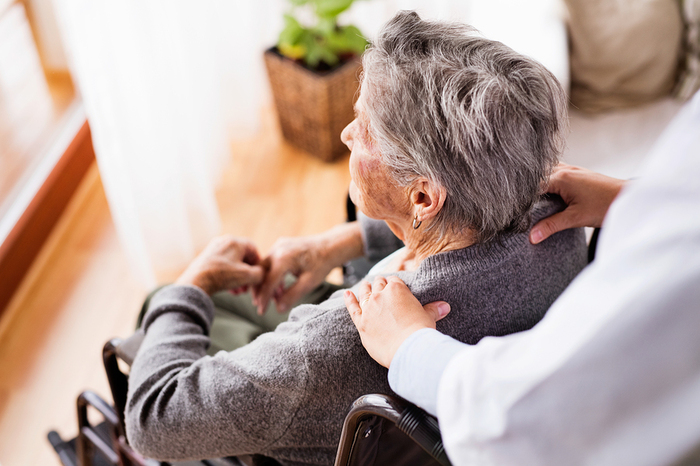
The number of seniors in the US taking three or more psychiatric drugs more than doubled in the nine-year period between 2004 and 2013, according to a recent study as reported by The New York Times. While this figure is troubling in itself, even more so is that fact that nearly half seniors taking these medications have no mental health diagnoses on record. What does this mean for seniors and caregivers? Here’s a closer look at the issue.
What Are Psychotropic Medications?
The Oklahoma Association of Clinical Nurse Specialists (OACNS) defines psychotropic medications as “a broad term referring to medications that affect mental function, behavior and experience.” The most commonly prescribed psychotropic medications include anxiolytics/hypnotics, such as benzodiazepines; antidepressants, including SSRIs, SNRIs, and MAOIs; and antipsychotic drugs, such as clozapine. They are typically given to older adults to manage symptoms of anxiety, depression, and/or insomnia.
Psychotropics and Seniors
According to OACNS, psychotropic medicine use is particularly prevalent among community-dwelling older adults. In fact, this segment of the population is up to 18 times more likely to be on psychotropic drugs than middle-aged adults. Not only are more than half of community-dwelling older adults prescribed psychotropic drugs within two weeks of being admitted, but research also indicates that as many of 87 percent of patients in nursing homes and psychiatric care geriatric units are taking at least one psychotropic medication while 11 percent are taking four or more.
These statistics are particularly alarming given what we know about the vulnerability of seniors to adverse effects of taking these medications. “In short, psychotropic medications can induce or worsen hypotension and put elderly patients at risk for falls and skeletal fractures, particularly when given in combination with other medications,” says OACNS. In fact, people over the age of 70 are 3.5 times more likely than younger people to be admitted to the hospital for psychotropic medication-related causes.
Which begs the question: What makes seniors so vulnerable to the effects of these drugs? For starters, age-related changes come into play. Factor in polypharmacy due to other medical conditions and the risks rise. Professor of Psychiatry and Neurosciences Dr. Dilip Jeste told The New York Times of the high prescription rates of psychotropic drugs to seniors, “I was stunned to see this, that despite all the talk about how polypharmacy is bad for older people, this rate has doubled.”
How Caregivers Can Help
According to Dr. Mark Olfson, who co-led the study, “This is a particularly worrisome pattern and suggests some inappropriate prescribing...the increases partly reflect doctors and patients falling back on medications when they have little access to other options.”
Specifically, Dr. Olfson recommends talk therapy, massage, and relaxation techniques as healthier alternatives to these dangerous and mind-altering drugs. At the same time, however, just 10 percent of doctor visits include the presentation of these options.
Caregivers can help keep their aging loved ones safe by asking prescribing physicians about why each medication is being prescribed, while also informing doctors about other medications, including over-the-counter drugs—all of which can increase the risk of side effects. Caregivers can also inquire about whether non-drug treatments may be appropriate.

Even in cases where psychotropic medications are necessary, caregivers can help make sure seniors are taking them the right way. Said Jeste, “I have seen patients take the less important ones while forgetting the ‘must take’ medications. Having a discussion with the physician is critical.”
mmLearn.org offers a large library of free videos for caregivers of older adults, covering topics pertaining to senior care, including more information on the effects of psychotropic medications, polypharmacy, and mental health. Whether you are a healthcare professional or a family caregiver, if you are caring for an older adult we know that you will find mmLearn.org an essential learning and guidance tool for all of your caregiver training needs. Access our database of free online caregiver videos for more free caregiver training resources today.
